Contributions Summer 2021
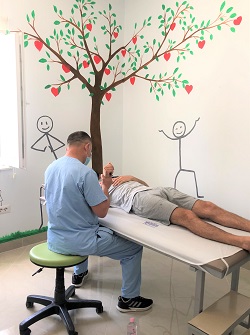
The mission of Primary Health Care (PHC) services in Albania is to protect and improve community health by preventing illnesses, providing evidence-based primary care services, addressing inequalities proactively by covering vulnerable groups, and reducing the need for avoidable hospital services. This mission is reflected in the “Strategy for Development of Primary Health Care services 2020-2025” that determines the pathways the PHC system will follow to address the health demands of the population better and more efficiently. The Strategy was designed with SDC assistance through Health for All Project and as such is a major achievement in the policy-making support for PHC strengthening in Albania. Presently HAP is supporting Albanian health authorities to implement the Strategy through the following main interventions: a) establishment of new service models such as home-based care; b) development of new clinical protocols and guides for treatment of most common Non-Communicable Diseases (NCDs) and strengthening of family medicine team capacities in their use; c) elaboration of new profiles of nurses operating in PHC; d) development of innovative education programs such as a new Master in Family Nursing.
In response to the need for new models of care for vulnerable groups, HAP elaborated different models of home-based care services targeting the homebound elderly and chronically ill in advanced stages of the disease. The main goal is to establish well-functioning and effective home care teams that provide systematically planned services. Two models are currently being piloted in 8 HCs covering a population of 66,800 inhabitants. After the implementation and evaluation of the pilot phase, the models will scale-up at national level.
The PHC Strategy has established a clear objective for elaboration of updated clinical protocols and guidelines (CPG) on priority NCDs for PHC professionals with the purpose of enhancing the quality of services. In this regard, HAP provided support to carry out a broad consultation process that succeeded elaborating new clinical protocols and guidelines on five most frequent NCDs that are treated at PHC level: hypertension, diabetes, dyslipidemia, asthma and COPD (chronic obstructive pulmonary disease). Presently family physicians and nurses from 80 HCs are being trained on the use of CPGs in their daily practice and will be monitored accordingly.
Revising nurse’s roles and boosting their capacities (through basic education programs) for them to take on new tasks and play a greater role in maintaining and improving the community’s health, is another objective of the PHC Strategy. In this regard, HAP supported re-formulation of the general role and responsibilities of the family health nurse in Albania and is working on elaboration of new nurse profiles that will be piloted in several HCs and other settings such as home-care nurse, health promotion nurse, school nurse and physical rehabilitation nurse. Implementing these new profiles will bring more autonomy to nurses, better services to patients with NCDs, more health prevention and promotion activities for communities and systematic home care for vulnerable patients and elderly.
Finally, a new Master’s program in Family Nursing has been developed and will be offered for the first time in Fall 2021 to PHC nurses in response to the need for improving basic education programs and upgrading their capacities to face new health challenges related to NCDs and ageing of the population.
More information
www.hap.org.al
Contact
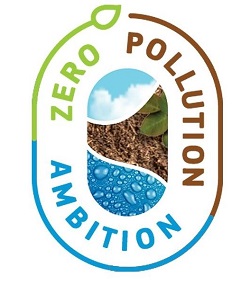
As we learned from the publication The Toxic Truth (Pure Earth & UNICEF, July 2020), around 1 in 3 children – up to 800 million globally – have blood lead levels at or above 5 micrograms per deciliter (µg/dL), the level at which requires action. Nearly half of these children live in South Asia, and 90% are in low- or middle-income countries.
The European Commission’s Pathway to a Healthy Planet for All EU Action Plan: 'Towards Zero Pollution for Air, Water and Soil', released in May, takes a significant step forward in addressing this issue by announcing the exploration of a global initiative to end informal recycling of used lead-acid batteries.
The momentous action plan, a key component of the European Green Deal, aims to guide all relevant EU policies in pollution prevention.
As discussed in the Lancet Commission on Pollution and Health (2017), despite the tremendous impacts on the global economy and human health (~9 million deaths annually), environmental pollution has been undercounted and insufficiently addressed in national policies and international development agendas.
Informal and substandard recycling of used lead-acid batteries (ULABs) pose a huge threat to human health globally. A key finding of both The Toxic Truth and Blood lead levels in low-income and middle-income countries: a systematic review (2021), was that a leading source of lead poisoning of children in low- and middle-income countries (LMICs) is the informal and substandard recycling of lead-acid batteries. In these countries, up to 50% of lead-acid batteries are processed informally.
That the EC action plan references ULABs specifically represents a huge step forward in recognition of this as priority for the global health and environment agenda. It states that “in particular, the increased use of cars, solar power and ICT technology has vastly expanded the use of lead acid batteries in developing countries. Their often informal recycling exposes people, to harmful lead pollution with a major impact on children and their development. The Commission will explore a global initiative with international partners to end informal recycling of used lead acid batteries” (pg. 19).
GAHP welcomes this global initiative to end unsafe lead acid battery recycling and stands ready to collaborate with all stakeholders.
Related resources
Contact
Rachael Kupka
Acting Director, Global Alliance on Health and Pollution (GAHP)
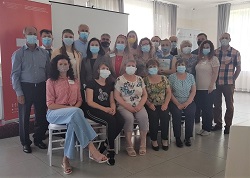
The topic of health promotion is not held in high esteem in Moldova, and is constrained by challenges related to infrastructure, finance and human resources. Moreover, there is a general perception that Health Promotion is the responsibility of health care providers.
Previously, only a limited range of Health Promotion tools and interventions were in use - mostly limited to the celebration of International Health Days and the distribution of flyers and posters. Group-based and workplace health promotion were not performed routinely.
SDCs Health Life Project worked with national stakeholders, policy makers and training institutions to modernize concepts and practices of Health Promotion for a greater emphasis on behaviour change. A national working group was formed with representatives of the State University of Medicine and Pharmacy ”Nicolae Testemitanu”, School of Public Health Management, Medical Colleges and the National Agency for Public Health. The new concept of health promotion reoriented activities to be focused not just on education but also on behavior change and the promotion of positive healthy behaviour using the Capability,Opportunity, Motivation for Behavior Change (COM-B) model.
The new concept bridges the gap from theory to practice and brings in a more applied focus on innovative behaviour change techniques and cumulated in the development of a new Health Promotion and Behaviour Change (HPBC) training course that includes 4 Modules:
- Module 1: Introduction to simple models of behaviour change
- Module 2: Health promotion intervention marketplace
- Module 3: Design and planning of health promotion interventions (with individual projects) and
- Module 4: Presentation of full intervention plans.
HPBC was launched in early 2020 and has since been institutionalized into the continuing medical education program of the State University of Medicine and Pharmacy ”Nicolae Testemitanu” and the School of Public Health Management. Use of modern health promotion approaches, including the COM-B model, has contributed to increased understanding and more effective interventions to reduce risks and promote healthy behaviour in the workplace and at community level.
Additionally, to further modernise health promotion for behaviour change approaches, the Healthy Life project is working to ensure that the responsibility for health is not seen to rest solely with health providers but rather with a larger range of community-based actors and ultimately with the population, including individual responsibility for health. Therefore, advances have been made to engage diverse actors at local level, build their capacities in health and foster community-wide coalitions for health promotion.
By Constantin Rimis, Public Health Advisor, Healthy Life Project & Florence Sécula, Health Promotion Advisor, Swiss TPH
More information
Secula F. et al. Evidence-based policy making for health promotion to reduce the burden of non-communicable diseases in Moldova. March 2020, BMC Proceedings. 14. (S1)
https://issuu.com/communications.swisstph/docs/stph_swiss-moldovan_broschu_re_issuu
https://viatasan.md/ansp-are-o-sala-dotata-pentru-instruiri-interactive-inclusiv-pentru-noul-curs-institutionalizat-promovarea-sanatatii-si-schimbare-de-comportament-1-71
Contact
Valeriu Sava, National Program Officer Health, Swiss Cooperation Office in Moldova

Like every organisation around the world IVCC has had to adapt and modify its operations in response to the global COVID-19 pandemic. Headquartered in Liverpool next to the Liverpool School of Tropical Medicine, IVCC employs UK and overseas staff as well as a number of consultants across many countries. Pragmatically, staying connected with work colleagues as the main Liverpool office closed down in March 2020 didn’t prove to be too much of a technical challenge, because of our historical reliance on platforms such as Microsoft Teams, Zoom and Skype for Business, but operationally COVID 19 brough significant challenges to our projects, particularly to those based overseas.
Internally, we recognised that we needed to enhance how we connected with each other both formally and informally as well as finding new ways to keep our funding and industry partners informed and aware of how IVCC was managing its core projects, upon which depend thousands of people living in malaria endemic counties.
Operationally IVCC quickly set up virtual twice-weekly team meeting for all staff, enabling colleagues to stay abreast of the multiple projects being run by IVCC. To date nearly 200 internal and guest presentations have been made, enabling staff to learn from each other how challenges presented by COVID 19 are being addressed and managed across the organisation and by partners. At the same time IVCC began enhanced data gathering so that fortnightly status reports could be issued to all of its key stakeholders. This enabled, almost in real time, partners to see how COVID was impacting projects and what remedial actions IVCC was initiating to overcome obstacles and delays at project sites across sub-Saharan Africa where critical field trials, Long Lasting Insecticidal Net (LLIN), Indoor Residual Spray (IRS) and Attractive Targeted Sugar Bait (ATSB) programmes were being conducted.
Projects, particularly those that require complex logistics to support, have without doubt impacted IVCC’s workplan during 2020 and with growing evidence of COVID 19 surging in regions of sub-Saharan Africa, challenges will continue to arise during 2021 and most likely well into 2022. However, by establishing multiple and transparent lines of communication across stakeholder groups, solutions have emerged and been shared to keep projects on track as much as feasibility possible.
As well as communication and operational challenges the COVID-19 pandemic has brought additional funding challenges to national governments and philanthropic organisations as the global health community rapidly and at scale moves resources to fight COVID-19. Malaria, which arguably should be recognised as a pandemic in its own right, devastates the lives of millions of people, particularly in sub-Saharan Africa where 90% of the 400,000 lives lost to malaria each year occur. The maintenance of critical funding and intervention programmes as well as strong health infrastructures has never been so important. COVID vaccines need to be distributed at scale and at pace across the global south with the same urgency they have been delivered across the global north not just for managing the COVID pandemic, but to enable critical malaria programmes to continue the life saving work they do.
IVCC is committed to playing its role in eradicating malaria once and for all, despite the challenges that COVID-19 currently presents. Indeed, the renewed focus on global health security and the ability of science to innovate and governments to fast-track the funding and delivery of vaccines to fight COVID gives us confidence that lessons learned can quickly be applied to help the global health community drive innovation in drugs, vaccines and vector control to overcome other devastating diseases such as malaria.
Contact
Chris Larkin
Director, Communications and Operations, IVCC
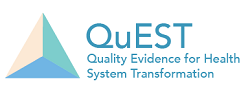
8 million people in low- and middle- income countries (LMICs) die each year from treatable conditions. 60% of preventable deaths are due to poor-quality care. Yet, one for every four individuals in LMICs believes that their health system works well.
The Quality Evidence for Health System Transformation (QuEST) Network is a global partnership of researchers, policymakers, multilateral organisations, and development partners, who are advancing health system quality research. QuEST is building the evidence base to support the transformation to high quality systems by improving measurement, testing solutions, and creating generalizable knowledge.
Supported by the SDC since 2019 with a preparatory phase and officially launched in May 2021, this global operational research platform works on policy advocacy on health systems quality, leveraging on practical experiences and innovative approaches from partnering countries. QuEST Research Centres are hosted in various academic and research institutions, like Harvard T.H. Chan School of Public Health, the Ethiopian Public Health Institute, KEMRI-Wellcome Trust in Kenya, and the community membership is progressively expanding. Two additional affiliate regional networks complete the QuEST “movement” and bring in perspective from a variety of corners of the world: one in Latin America hosted by the Institute of Clinical Effectiveness and Health Policy in Argentina, and a second one bringing together countries of the Maritime Belt and Road (from China to Mozambique across South-East Asia, the Indian Ocean and Eastern Africa), hosted by the Southern Medical University in Guangzhou.
Amongst the Network’s fist official activities, QuEST just published its
first Newsletter, with the latest research updates, policy spotlights, upcoming events, new job openings and related literature around health systems quality and transformation.
Contact
Barbara Profeta, PhD.
Health Advisor for Eastern Europe and Central Asian Domains
Focal Point Global Programme Health, SDC, Bern
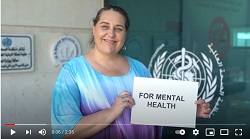
US$ 1 trillion a year. This is how much depression and anxiety, two of the most common mental disorders, cost to the global economy in lost productivity. Mental, neurological and substance use disorders account for more than 10% of the global disease burden, while 75% of the population in low- and middle-income countries who suffer from mental disorders do not receive any treatment at all.
In 2018, the World Health Organisation (WHO) Director, Dr. Tedros Ahanom Ghebreyesus, declared mental health as an important area for action. The following year, the
WHO Special Initiative for Mental Health was established, and further developed with the support of SDC. The goal of the Initiative is to enable access to quality and affordable mental health care to 100 million people by 2023 in 12 countries.
The SDC opening phase of Mental Health for Universal Health Coverage (MH4UHC) selected early-adopter countries for the WHO Special Initiative:
Bangladesh, Jordan, Paraguay, the Philippines, Ukraine and
Zimbabwe. These countries participated in the
Mental Health opening meeting in Geneva in January 2020 where they finalised an initial assessment to broadly map the mental health needs, available services, opportunities, and main challenges to scale-up, based on they explored their specific plans for the WHO Special Initiative for Mental Health, with Paraguay, Philippines, Ukraine and Zimbabwe completing full logical frameworks and work plans via online consultations with an array of stakeholders. People engaged in design included government, mental health professionals, people with personal mental health-related experience and psychosocial disabilities, and each level of WHO (country, region and HQ). Bangladesh and Jordan are taking country-specific approaches to design and establishing work plans. The WHO Special Initiative for Mental Health country work plans feature common goal-level indicators for future monitoring and evaluation of the overall initiative, plus targets to assess individual country achievements.
Common elements of country designs for the WHO Initiative include health system strengthening approaches, such as bolstering governance and leadership, workforce development and scaling up services at primary health care levels, including as part of essential services under UHC initiatives and integration with other aspects of health care (e.g., non-communicable diseases). They all feature plans to actively work to improve the rights of persons living with mental health conditions and facilitating more accessible community-based mental health care.
In the meantime, WHO also finalised the full revision of the two appendices of the
Mental Health Action Plan extended to 2030 and completed preparations for the 2020
Mental Health Atlas to be published in 2021. WHO is also preparing for a landmark
World Mental Health Report. The
Big Event for Mental Health, held on World Mental Health Day (10 October 2020) was a highlight advocacy event during this reporting period, alongside other global advocacy efforts.
The SDC Opening Phase concept focused on advocacy to support normative and policy development and support the scale up of quality and affordable mental health. All key achievements were met, and in some instances exceeded. In addition, some countries took some first steps towards implementing the WHO Special Initiative for Mental Health. For example, the Philippines completed an investment case and Ukraine saw the beginning of operational Community-Based Mental Health Teams. Throughout 2020, Jordan developed a roadmap from long-stay facility-based services towards community-based services.
WHO Special Initiative for Mental Health – SDC support as a catalyst for others to invest
At the beginning of the project, WHO was still in discussion with USAID on funding to the WHO Special Initiative for Mental Health. Eventually, USAID committed to support the WHO Special Initiative for Mental Health from [late] 2019 to 2022. SDC’s early engagement catalysed additional funding, and public support announcements proceeded from NORAD and the Bernard van Leer Foundation. Financial support from NORAD allowed WHO to expand the Special Initiative to include a 7th country – Nepal – and enabled an even stronger focus on integration with non-communicable diseases. Funding (largely via EU) from WHOs UHC-P has additionally assisted the WHO Special Initiative for Mental Health to financially support HQ staff to dedicate time to ensuring integration of mental health in WHOs UHC agenda. At the time of this report, financial discussions for the WHO Special Initiative for Mental Health has been ongoing with UK FCDO,
various philanthropic organisations, the government of Japan and Grand Challenges Canada. Discussions will also be ongoing with NORAD for long-term support.
Videos
Overall video summarizing WHO Special Initiative for Mental Health Plans across all seven countries Contact
Erika Placella
Deputy Head of Division Global Programme Health, SDC, Bern
SDC supported the Ministry of Health and Social Protection (MoHSP), the Ministry of Education and associated institutions e.g. Post Graduate Medical Institute (PGMI), in the complex process of reforming the undergraduate and postgraduate education of family doctors and nurses, as well as their continuing education, between 2009 and 2019.
Traditionally, medical doctors seeking to specialise in family medicine (as all specialist residencies in Tajikistan) undergo a one-year unstructured clinical placement, the so-called “Internatura”.
The reformed two-year postgraduate speciality training in family medicine, namely the “Clinical Ordinatura” (also abbreviated as the PUST – Post University Speciality Training), was introduced in 2013. It comprises a theoretical component (20%) that is taught at the Institute or through its trainers at peripheral clinical training bases. Practical, clinical teaching takes place in policlinics and rural health centres, and is delivered by trained and certified family doctors (called clinical tutors) under the supervision of the PGMI. The residents are integrated into the Primary Health Care team with growing responsibility over the course of the two years.
Our recently published article reports on the evaluation of the reformed speciality training for family doctors. We employed a quasi-experimental control group design and compared newly graduated PUST residents with Internatura, and 1st year PUST residents in two outcomes, clinical knowledge and competencies. We found statistically significant differences in both clinical knowledge and competencies between PUST residents and control groups.
Investing in reformed family medicine residency programs and structured training is effective in increasing critical clinical competencies. Given the dearth of evidence in this area, the findings are highly relevant for policy-makers, international organizations and practitioners participating in similar medical education reform programs. The publication is available
here.
This builds on two other publications, one documenting the broader contribution of this comprehensive medical education reform support, and another making the case for continued investment in the two-year speciality training to which the World Bank, European Union and GIZ have since responded.
By Shakhlo Yarbaeva & Helen Prytherch, Swiss Tropical and Public Health Institute
More information
Leah Bohle
Swiss Tropical and Public Health Institute
